Mickelson Mistake: Impact on Golf and Sports Betting
USGA Mistake: Mickelson Makeup and Apology for Miscue
It’s too bad Phil Mickelson overshadowed the premium performance of Brooks Koepka winning his second U.S. Openin as many years. Mickelson committed a bizarre penalty during Saturday’s third round when he putted a ball a second time before the ball had stopped moving.
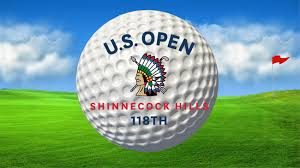 The infraction earned Mickelson a two-stroke penalty, but many believe he should have been disqualified, including PGA Tour pros. And of course, the USGA’s decision to allow Mickelson to continue his round affected tickets for interested sports bettors around the world.
The infraction earned Mickelson a two-stroke penalty, but many believe he should have been disqualified, including PGA Tour pros. And of course, the USGA’s decision to allow Mickelson to continue his round affected tickets for interested sports bettors around the world.
This left many asking: why wasn’t Mickelson disqualified for his intentional act and rules violation?
The Putt Heard Round the World
The incident came on the 13th hole on Saturday when Mickelson hit his bogey putt well past the hole and it appeared destined to roll off the green. Rather than wait to see where the ball might end up, Mickelson ran after the ball and hit it again as it was still moving.
Mickelson was assessed a two-stroke penalty for the infraction and took a score of 10 on the hole. The USGA cited Rule 14-5:

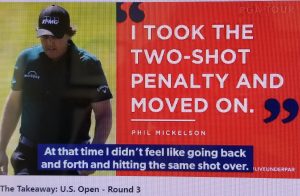 But in citing Rule 14-5, the USGA superseded Rule 1-2.
But in citing Rule 14-5, the USGA superseded Rule 1-2.
Rule 1-2 comes with a provision that would have allowed Mickelson to be disqualified if the action were deemed to have gained him a “significant advantage.”

The USGA said Mickelson was given a penalty for violating Rule 14-5, but not Rule 1-2, because, ‘He didn’t purposely stop or deflect the ball.”
Well, that’s such a poor explanation and excuse for not enforcing what should have been a disqualification. Mickelson later acknowledged that he intentionally hit the moving ball because he didn’t want it to roll off the green. He apologized for his actions on Wednesday.
Ruling Impact on Golf Betting
I had a number of betting interests in the U.S. Open tournament match-ups, including a small slice on Mickelson over Tiger Woods. When Tiger missed the cut and Phil made it to the weekend, Mickelson was declared the head-to-head match-up winner.
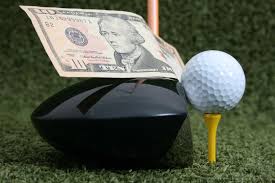 According to Nevada sports book house rules:
According to Nevada sports book house rules:
IF ONE GOLFER CONTINUE PLAY AFTER HIS OPPONENT HAS MISSED THE CUT, WITHDRAWN (WD) OR BEEN DISQUALIFIED (DQ), THE GOLFER WHO CONTINUES PLAY WINS HIS MATCH-UP
But what if Mickelson was in contention to win the tournament? What if Woods had made the cut? There could have been many wagering interests and potential live-betting situations involving Mickelson.
A rules violation can have an impact on wagering results. Recall when the USGA made a ‘big bogey’ according to USGA CEO Mike Davis when it penalized Dustin Johnson one stroke during the 2016 U.S. Open on a murky new rule that was revised to help players who were grounding their putters while addressing the ball. The USGA’s delayed enforcement created a fiasco.
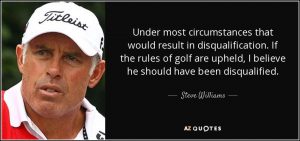 At the 2010 PGA Championship with the PGA officials, Johnson was issued a controversial two-stroke penalty on the 18th hole Sunday in what was one of the most bizarre rules gaffes in decades. Johnson was ruled to have grounded his club in a bunker, but it was more like dirt and a waste area that the crowd had been walking on and standing in during the tournament. Needing only a par on the final hole to win, the penalty cost Johnson the golf tournament.
At the 2010 PGA Championship with the PGA officials, Johnson was issued a controversial two-stroke penalty on the 18th hole Sunday in what was one of the most bizarre rules gaffes in decades. Johnson was ruled to have grounded his club in a bunker, but it was more like dirt and a waste area that the crowd had been walking on and standing in during the tournament. Needing only a par on the final hole to win, the penalty cost Johnson the golf tournament.
What About Integrity?
In September 2017, the PGA implemented a new integrity program to “protect its competitions from potential outside influences related to gambling.” Then PASPA went to the Supreme Court in December, and the federal sports betting ban was struck down in May, allowing for all states to launch a regulated sports betting market.
In considering golf wagering for the future and the potential impact of ‘integrity fees’, how will the PGA handle these types of situations with a royalty being collected by the PGA for all the golf wagering during their tournaments? The PGA issued a statement on regulation saying that it’s the most effective way of “ensuring integrity in competition, protecting consumers, engaging fans and generating revenue for government, operators and leagues.”
But when these strange occurrences surface like the Mickelson mistake and even more money is at stake, will bettors be the ones sending complaints to the PGA offices?
Article posted at TheLines.com.
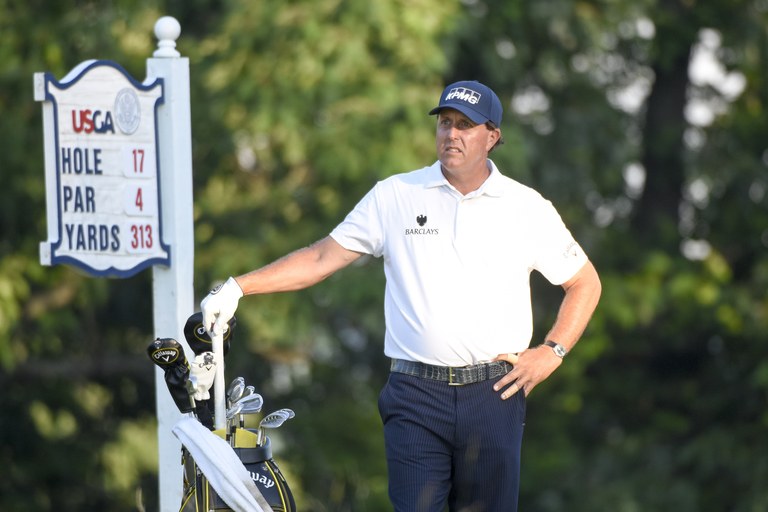
 Twitter
Twitter Facebook
Facebook